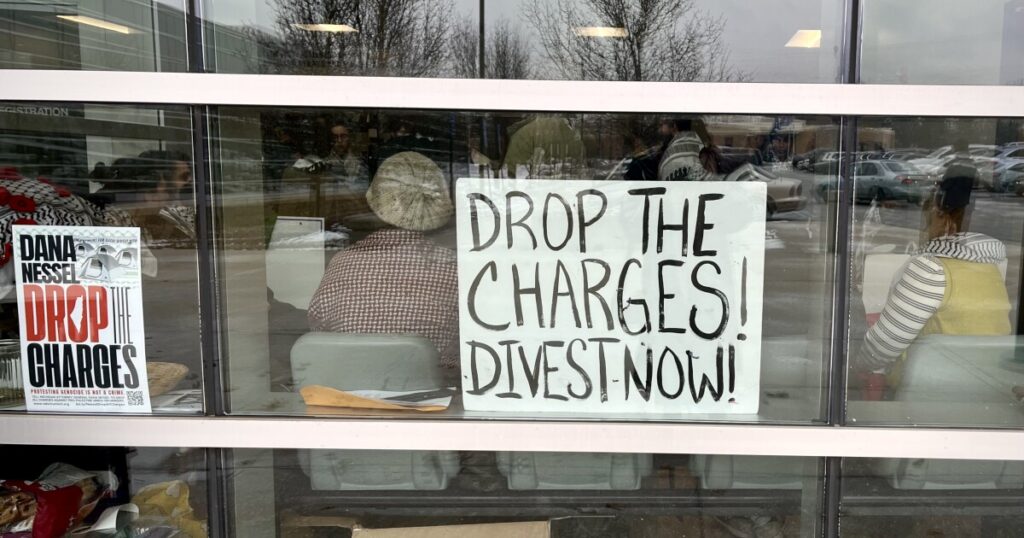Charges Dropped Against U of M Protesters After Encampment Raid
In a recent development at the University of Michigan, the attorney general’s office has dropped charges against two individuals accused of trespassing during a police operation at a pro-Palestinian protest camp. This decision brings relief to those involved, as they were part of a larger movement advocating against U of M’s financial ties with Israeli entities.
Josiah Walker and Salma Hamamy, who were set to appear in court next week, no longer face legal proceedings after an Ann Arbor District Court judge approved the dismissal. Walker, a student who had paused his studies for a year, expressed relief at the decision, stating that the legal battle had hindered his academic focus. “I couldn’t just focus on attending class or like participating in the commitments that I wanted to because I had to deal with the most powerful law enforcement official in the entire state,” Walker remarked.
Their attorney, Doraid Elder, was confident that a jury would have supported Walker and Hamamy’s rights to public demonstration as protected by the First Amendment. Elder commented that the dismissal allows the pair to “move forward in life and to one day tell their children or grandchildren about how they stood up against injustice and how they stood their ground.”
The protest involved setting up a tent encampment at the campus’s Diag, urging the university to sever ties with Israeli firms in reaction to military actions in Gaza after the Hamas-led attack on October 7, 2023. This case dismissal mirrors the previous action taken against seven other protesters charged with resisting arrest and trespassing.
A spokesperson for the attorney general’s office explained that the dismissal was “consistent with” earlier decisions in related cases. Previously, Attorney General Dana Nessel criticized the legal process as a “circus-like atmosphere.” Despite believing that a jury would have found the defendants guilty, Nessel stated, “I no longer believe these cases to be a prudent use of my department’s resources, and, as such, I have decided to dismiss the cases.”
Defense attorneys in the felony cases accused Nessel of selectively choosing cases, highlighting that the attorney general usually refrains from pursuing minor charges like resisting arrest or trespassing. They also criticized her previous statements on the matter, questioning her ability to act impartially.
Responding to these claims, Nessel emphasized that the encampment on campus was illegal and that charges were only pressed against individuals whose actions were deemed criminal, such as obstructing police actions. “In my career, I’ve never seen anybody be able to treat a police officer that way while they were in the course of executing a legal order and not get charged with anything,” she asserted.
During a townhall event, Nessel addressed queries from Judge Cedric Simpson about the case’s jurisdiction, attributing the involvement of her office to unprecedented levels of antisemitism. She also refuted accusations of taking the case due to pressure from Jewish individuals or donors, stating, “So now we’re at a point where I’m being — the Jewish attorney general is being — investigated.”
Defense attorneys countered that their request for Nessel’s recusal was based on her conduct, not her faith. They pointed out that typically, such low-level charges are managed by city or county prosecutors, not the state attorney general.
Michigan Public’s examination of biennial reports revealed that Nessel’s office rarely pursued cases solely for trespassing, with most instances relating to casino-related trespassing. Despite repeated inquiries, Michigan Public did not receive clarification from the attorney general’s office regarding its prosecution policies for trespassing.





